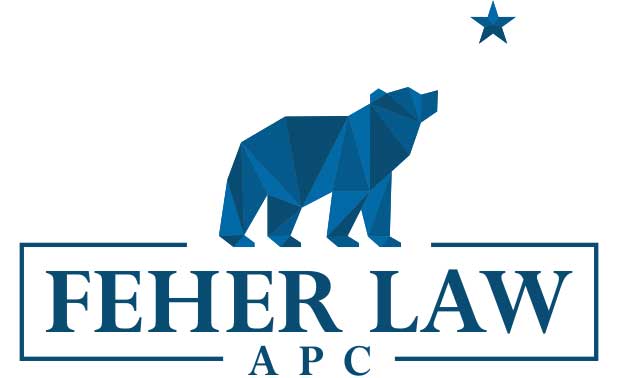What Happens When You Reject an Insurance Settlement Offer

Rejecting an insurance settlement offer in California initiates a complex process that often involves continued negotiations or potential legal action. When you decline the insurer’s offer, it typically signifies dissatisfaction with the proposed amount, prompting further discussions.
These negotiations may involve back-and-forth exchanges between you and the insurance company, with both parties striving to reach a mutually agreeable resolution. However, you may pursue legal action if talks stall or fail to produce a satisfactory outcome.
In these cases, hiring an experienced personal injury lawyer when you’re not happy with the settlement offer becomes crucial.
Possible Outcomes of Rejecting an Insurance Settlement Offer
When you reject an offer, you set in motion a series of potential outcomes that can significantly alter the trajectory of their claim. Each choice carries inherent uncertainties but also opportunities for achieving justice and adequate settlement amounts.
Negotiations
Rejecting an insurance settlement offer doesn’t mark the end of the road; rather, it can be a strategic move to kickstart or reopen negotiations. This decision signals to the insurer that their proposal is unsatisfactory and that there’s room for further discussion. It’s a clear indication that the claimant believes their case merits more substantial compensation, thereby setting the stage for negotiation to secure a more favorable outcome.
Medical bills play a large role here, especially in personal injury claims. Detailed documentation from healthcare providers about injuries sustained, treatments received, and prognoses can paint a vivid picture of the physical toll taken on an individual.
Similarly, repair estimates serve as tangible proof of property damage costs directly attributed to an incident—be it vehicular collisions or home damages due to natural disasters.
Additional reading: negotiating medical bills after settlement
Counter-Offers
Submitting a counter-offer is a huge moment in the process, marking a proactive step towards securing a more favorable settlement. This strategic maneuver involves not only suggesting an alternative sum but also potentially revising the terms under which compensation is to be received.
When issuing a counter-offer, consider these elements:
- Evaluate Damages: This encompasses a broad spectrum, ranging from physical injuries sustained to property damage inflicted and the often-overlooked emotional distress experienced. Each facet requires careful consideration to ensure a comprehensive understanding of the extent of the impact.
- Calculate the Offer Amount: It’s essential to factor in the tangible costs incurred and the intangible ramifications, such as ongoing medical treatment or psychological therapy. Striking the right balance ensures that the offer accurately reflects the totality of the damages suffered.
- Understand Limitations: While advocating for fair compensation, it’s crucial to be cognizant of the constraints imposed by policy limits and shared liabilities. Familiarizing yourself with these limitations enables a more informed negotiation strategy, preventing unrealistic counter-offers that may hinder productive discussions.
- Collect Evidence: Collecting solid evidence is crucial for supporting claims related to both physical injuries and property damage. Medical records are indispensable, providing indisputable proof of injury severity and forming the basis for calculating medical costs and projecting future care requirements.
- Justification of Your Counter-Offer: Articulating the rationale behind the proposed counter-offer requires more than just presenting numbers; it demands a compelling narrative that encapsulates the magnitude of the hardships endured.
- Flexibility on Terms: Recognizing that negotiations extend beyond financial figures, it’s essential to remain flexible on other terms that could influence the overall settlement.
As you might expect, compiling a counter-offer yourself based on the above factors can be extremely difficult to do, especially when struggling with the aftermath of an injury. Expert advice from an injury attorney can be invaluable in this circumstance.
For example, if you’ve been injured after a car accident in Los Angeles, consider contacting a Torrance car accident lawyer for further guidance.

Mediation or Arbitration
Both mediation and arbitration serve as effective alternatives to litigation by providing paths toward resolution without resorting to court trials. Here is the difference between the two:
- Mediation: Mediation involves a neutral third party, the mediator, who facilitates discussions between disputing parties to help them reach a mutually acceptable agreement. It’s a voluntary and confidential process where the mediator does not impose a decision but assists in finding common ground. This method is often less formal and allows for more flexible solutions tailored to both parties’ needs.
- Arbitration: Arbitration is a court proceeding more closely but occurs outside of traditional judicial venues. An arbitrator or panel makes decisions after hearing evidence and arguments from each side. Unlike mediation, arbitration results in a binding decision that the parties must adhere to unless they agreed beforehand that the arbitration would be non-binding.
New Insurance Adjuster
When an insurance settlement offer is rejected, it’s not uncommon for the insurance company to assign a new adjuster to the claim, potentially opening the door for a fresh review of the case. This change can be both an opportunity and a challenge.
On one hand, a new adjuster may bring a different perspective that could lead to more favorable terms; they might reassess previous evaluations with fresh eyes and possibly identify overlooked details favoring your position.
On the other hand, this transition could introduce challenges if the new adjuster adopts a stricter stance or revisits previously settled discussions, requiring you to reassert your case and justify your demands anew.
Litigation
Litigation is the final recourse for resolving disputes when negotiations fail, involving a formal process of taking the case to court. This route can yield higher rewards if the judgment favors the claimant, recognizing and compensating for damages not acknowledged in settlement offers.
However, it carries inherent risks and considerations: litigation is often time-consuming, with cases stretching over months or even years before concluding. It also incurs significant costs—from legal fees to court expenses—that may not be recoverable unless successful.
Additional reading: California personal injury statute of limitations
Common Reasons to Refuse an Insurance Settlement Offer
In our experience, these are the most common reasons why victims refuse an offer from the insurance company:
- Insufficient Compensation: When the offered amount fails to cover all incurred damages, including medical expenses, property damage, lost wages, and other financial losses.
- Disputes over Fault or Liability: If there’s disagreement regarding who is at fault or liable for the incident, leading to an inaccurate representation of responsibility in the settlement offer.
- Future Complications Ignored: Settlement offers may be rejected if they don’t consider potential future complications, such as ongoing medical treatment, rehabilitation costs, lost earning capacity, or long-term consequences of injuries.
- Inadequate Coverage Utilization: Policy holders may refuse offers that don’t fully utilize available insurance coverage or fail to provide entitled benefits under their policy.
- Preservation of Legal Rights: Including negotiating a higher settlement, pursuing mediation, arbitration, or filing a lawsuit against the insurer.
Before deciding, it’s essential that you carefully assess the offer’s adequacy and consult with a legal expert to ensure your current and future needs are appropriately addressed.
If you’ve been involved in a car accident in the Los Angeles region, consult with a San Bernardino car accident attorney for further guidance.

How to Decline Insurance Offers
Declining an insurance offer requires careful consideration and tactful communication. It’s about more than just saying “no”; it involves understanding the reasons behind your decision, being clear on what you believe is fair compensation, and effectively communicating this stance to the insurer.
- Review the Offer Carefully: Thoroughly examine the insurance settlement offer’s details and ensure it’s not a lowball offer. You should look at the proposed amount and any conditions attached to it.
- Consider Your Options: Assess whether the first settlement offer adequately addresses your current and future needs, considering all damages, expenses, and potential complications related to the incident.
- Consult with Professionals: Seek advice from legal and financial experts to understand the implications of accepting or rejecting the offer. They can provide valuable insights into your rights and options.
- Prepare a Written Response: Draft a formal written response, clearly stating your decision to decline the settlement offer. Be concise, professional, and specific in your communication.
- Express Reasons for Declining: Clearly articulate the reasons for rejecting the offer, such as insufficient compensation, disputes over fault or liability, or concerns about future complications not being addressed.
- Document All Communications: Record all correspondence with the insurance company, including copies of letters, emails, and any other written communication during the negotiation process. These can be shown as reasons to reject a lowball settlement offer.
- Seek Legal Review: Before sending your response, review it with your legal counsel to ensure clarity, accuracy, and adherence to relevant laws and regulations.
- Send the Response: Once you’re satisfied with the written response and your legal advisor has reviewed it, send it to the insurance company via certified mail or another trackable method to ensure delivery and create a paper trail.
- Continue Negotiations if Necessary: After declining the initial offer, be prepared for potential further negotiations or legal proceedings. Stay engaged in the process and advocate for your rights with the support of your legal representation.
- Evaluate Future Offers: If the insurance company makes subsequent settlement offers, carefully evaluate each in light of your needs and legal advice before making a decision.
Additional reading: my car was hit and their insurance won’t pay
How a Lawyer Can Help With Settlement Offers
When faced with an insurance settlement offer, an experienced lawyer can provide invaluable support and guidance throughout the decision-making process:
- Objective Assessment: We offer an objective evaluation of the settlement offer, considering factors such as the extent of damages, legal liabilities, and the claimant’s best interests. We ensure that you fully understand the implications of accepting or rejecting the offer.
- Skilled Negotiation: With our expertise in negotiation strategies, we seek a fair and equitable settlement. With our negotiation skills, the offer can often result in improved terms or higher compensation than initial offers.
- Protection of Rights: We are dedicated to protecting your rights throughout the settlement process, ensuring that all legal procedures are followed, deadlines are met, and that your interests are prioritized at every stage.
- Experience and Expertise: With a wealth of experience in handling insurance claims and settlement negotiations, Feher Law has the knowledge and expertise to navigate complex legal issues effectively. With our insights insights into insurance laws and regulations, we can achieve optimal client results.
Our commitment to excellence ensures that clients receive the highest level of legal representation throughout the settlement process.
Additional reading: should I get a lawyer for a car accident that wasn’t my fault
Wondering What Your Case Could Be Worth?
Our personal injury settlement calculator helps you estimate the potential value of your claim by considering important details like medical expenses, lost wages, and property damage. For a more accurate and personalized evaluation, connect with our experienced personal injury attorneys.
Disclaimer: The results generated by this personal injury settlement calculator are for informational and illustrative purposes only. They do not constitute legal advice or a substitute for professional evaluation. The calculator provides a simplified estimation based on general inputs and does not account for the unique details of your case, including jurisdictional laws, liability factors, or other critical variables.
Selected Value: 0%
Maximize Your Settlement With the Right Attorney
Rejecting a settlement offer requires careful consideration and strategic action. While it may lead to a better outcome, assessing your options thoroughly and seeking professional legal assistance is essential.
Feher Law offers objective assessment, skilled negotiation, and unwavering support to help you confidently navigate the settlement process. Remember, your rights matter, and with Feher Law on your side, you can maximize your settlement and move forward with peace of mind.
Contact us today at (866) 646-6676 to take the first step toward securing the compensation you deserve and to schedule your free consultation.
GET A FREE CONSULTATION
Our team is standing by and ready to assist you. Consultations are completely free and confidential. We will help you determine if you have a case.
- Over $100 Million Recovered For Clients
- No Fees Unless We Win
- We Fight for Maximum Compensation
- Get The Justice You Deserve
"*" indicates required fields
FAQs
Should I accept the first offer from an insurance company?
Accepting the first offer from an insurance company is not always advisable. First offers are often lower than what you may be entitled to, so it's essential to carefully review the offer, consider your damages, and, if necessary, negotiate for a fairer settlement.
How long do I have to accept a settlement offer?
The timeframe to accept a settlement offer varies depending on the terms outlined by the insurance company and the specific circumstances of your case. It's crucial to review any deadlines specified in the offer and to consider seeking legal advice if you're uncertain about the timing.
Can an insurance company take back a settlement?
In certain circumstances, an insurance company may attempt to retract a settlement offer, such as if new information comes to light or if there are legal issues with the agreement. However, this typically requires valid reasons and may involve legal challenges. Consulting with a lawyer can help you understand your rights in such situations.
Can an insurance company settle a claim without my consent?
Sometimes, an insurance company may settle a claim without your explicit consent, especially if you've given them the authority to negotiate on your behalf. However, they are generally required to act in good faith and consider your best interests when making settlement decisions. If you have concerns about a settlement reached without your involvement, it's advisable to seek legal advice.











Related Posts

Suspect Injured in South LA Chase Crash

Pregnant Woman Killed in Anaheim DUI Crash

Fatal Crash in South Los Angeles Claims One Life

Man in Wheelchair Killed in Downtown LA Crash

Bicycle Accident Compensation Calculator in California

